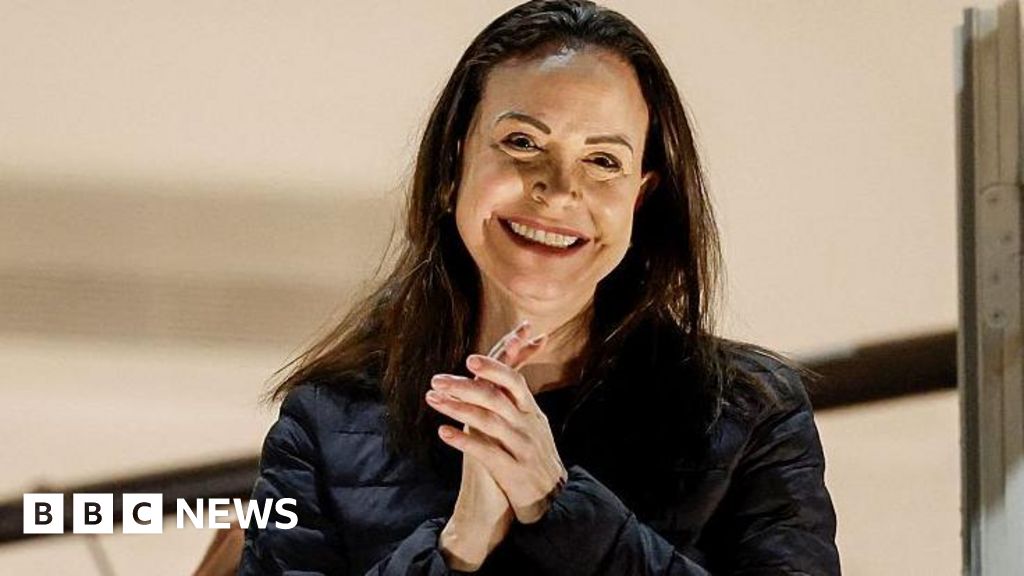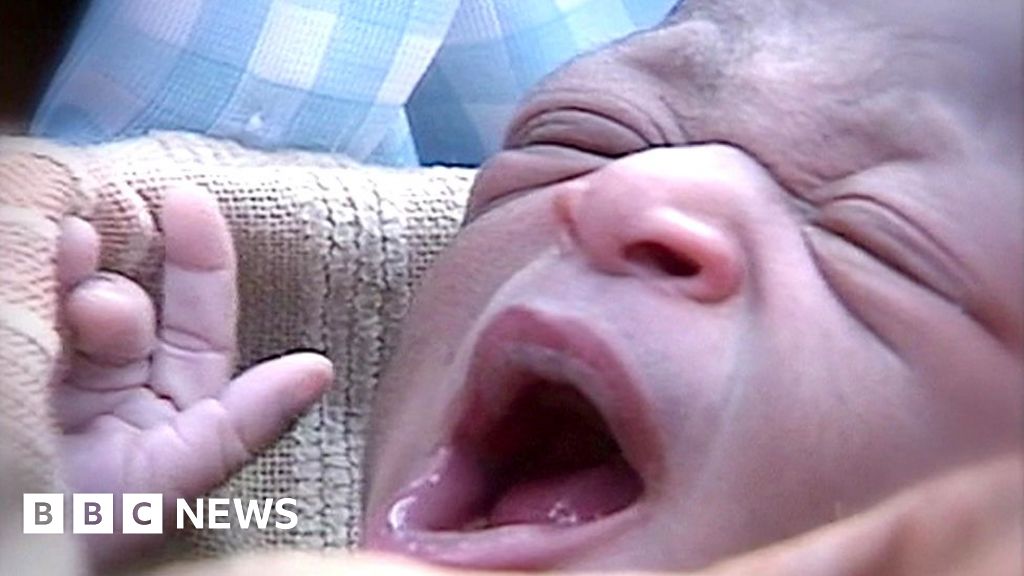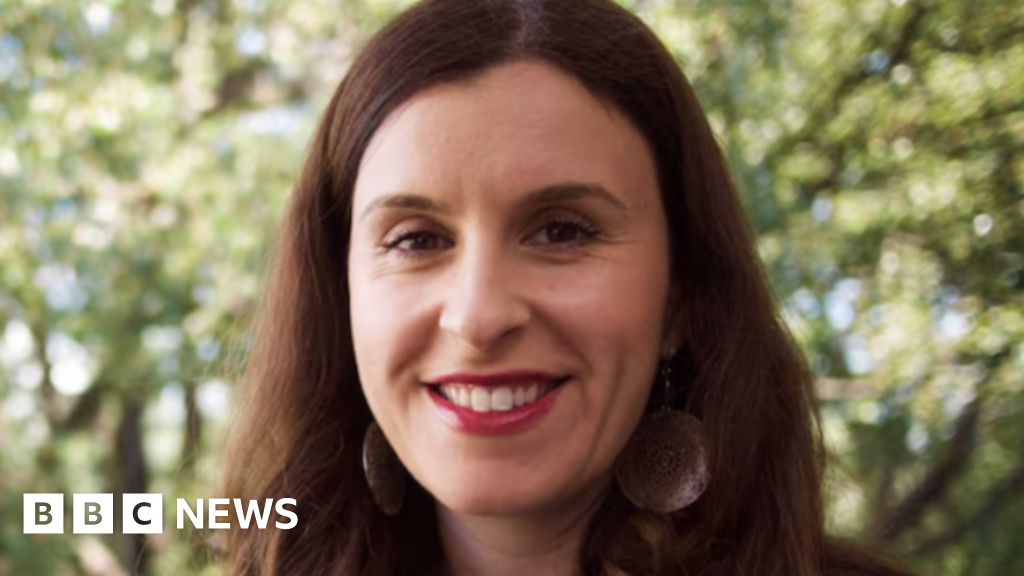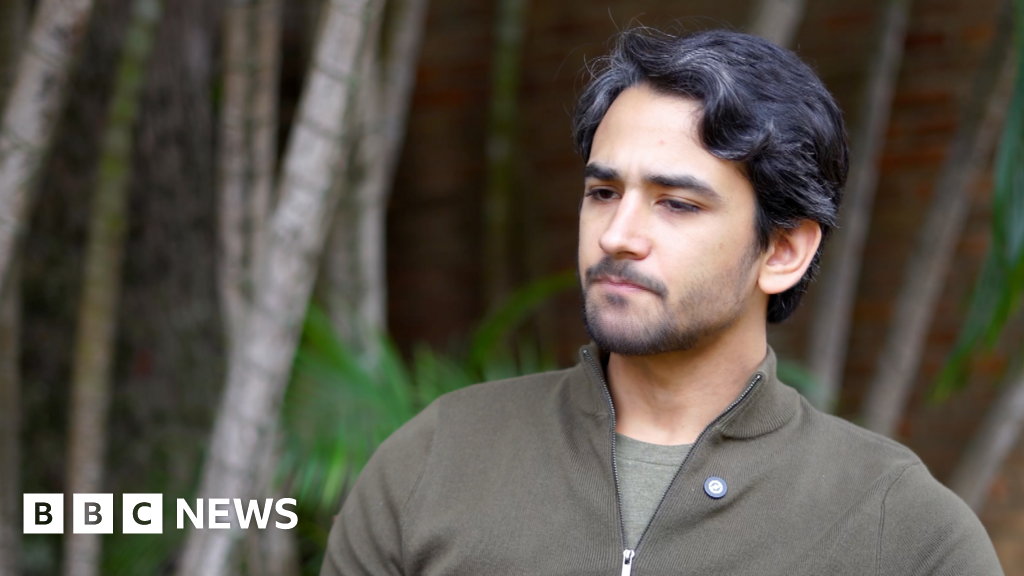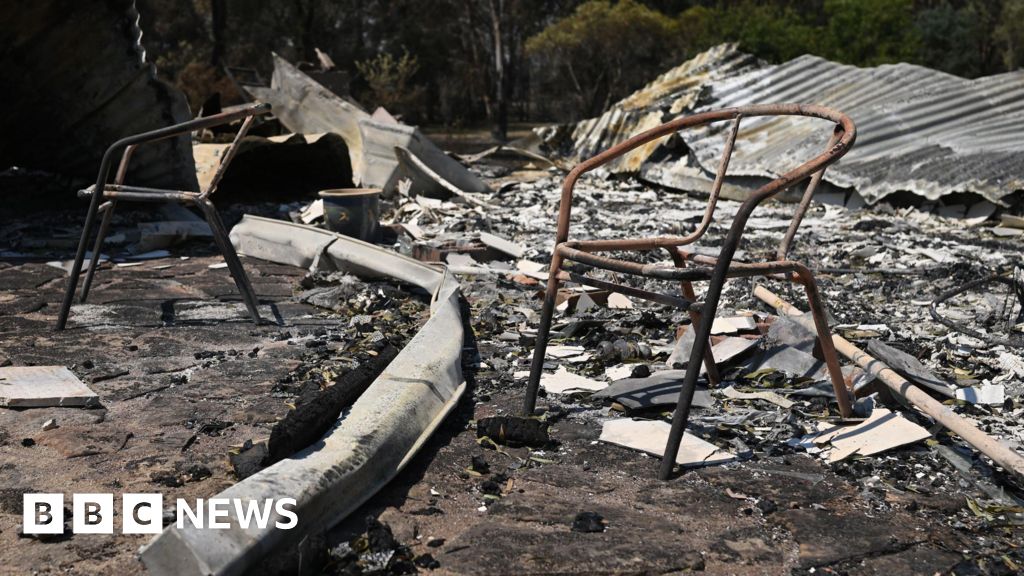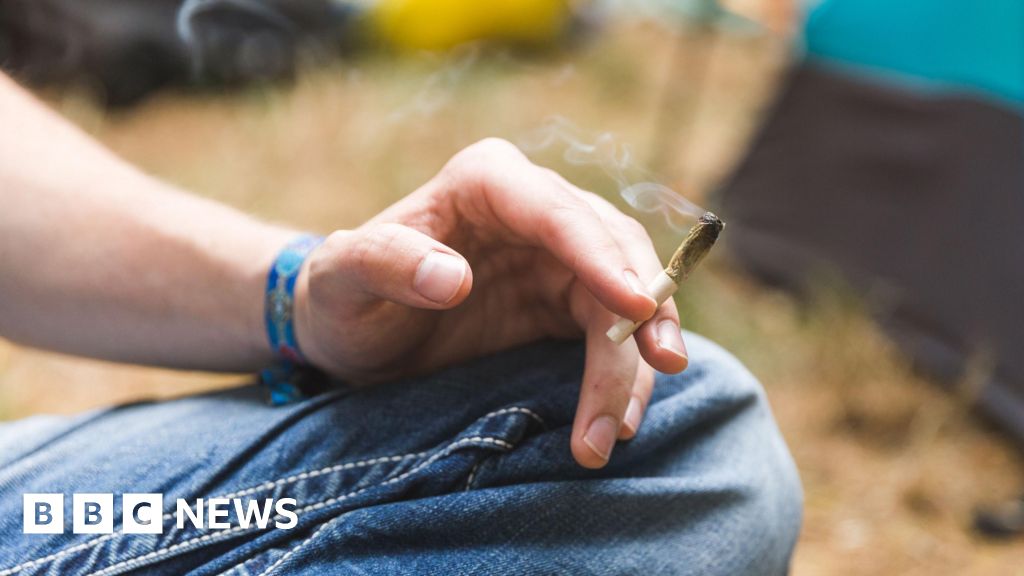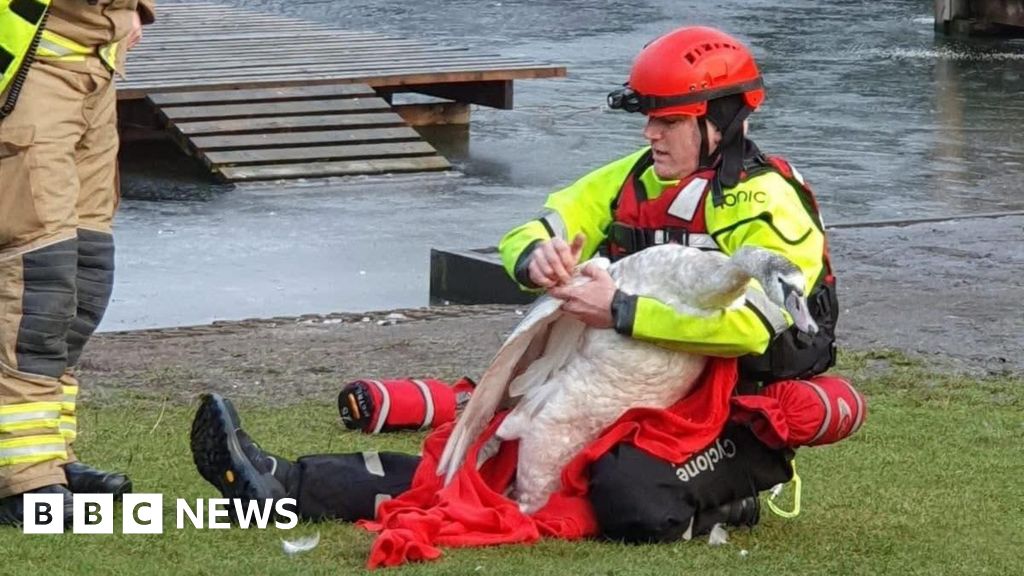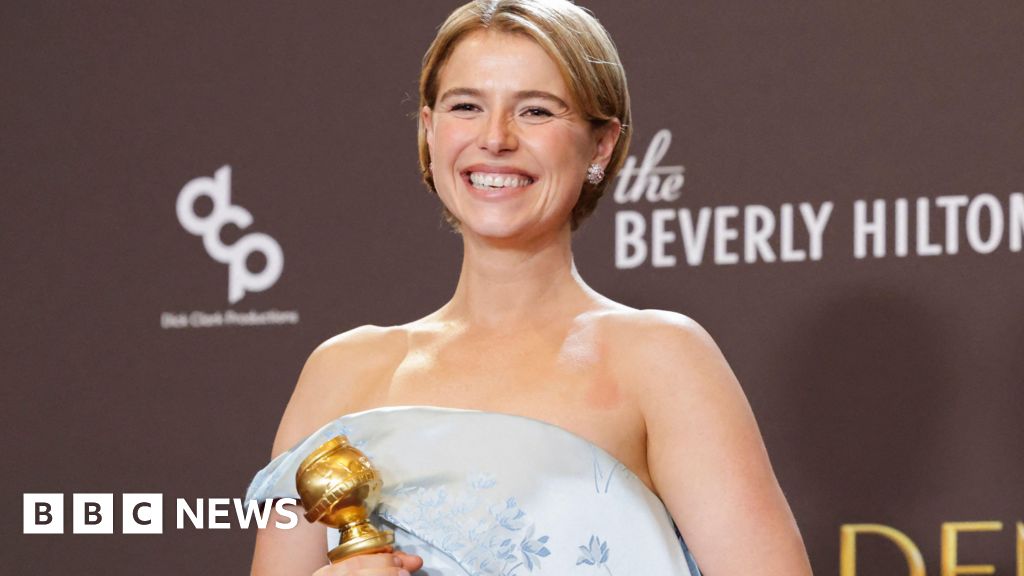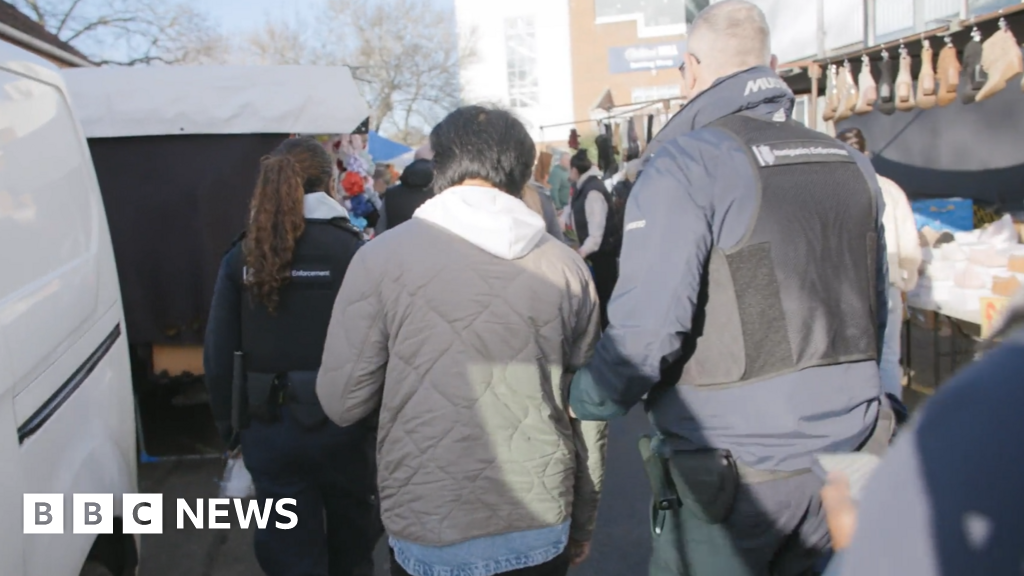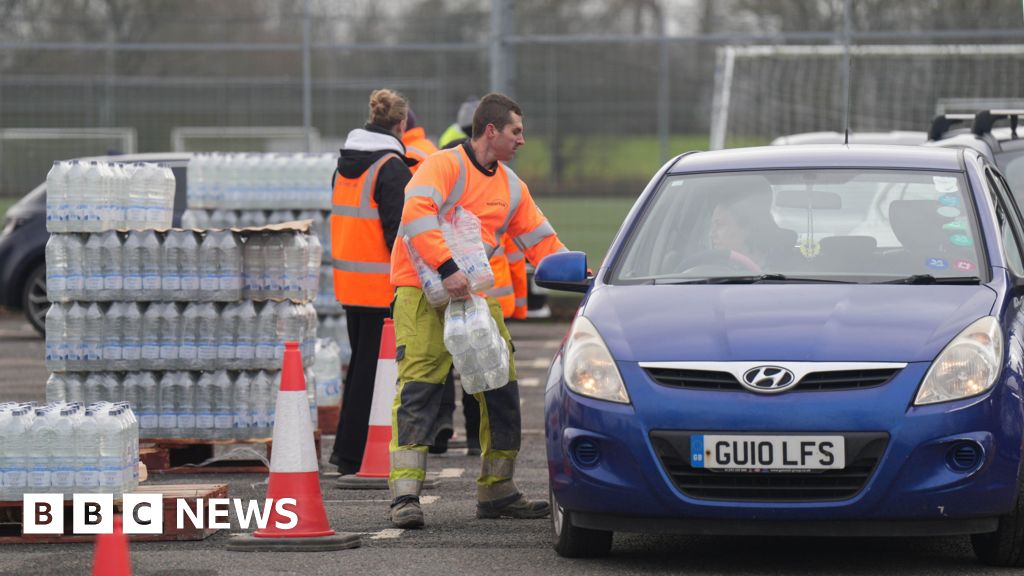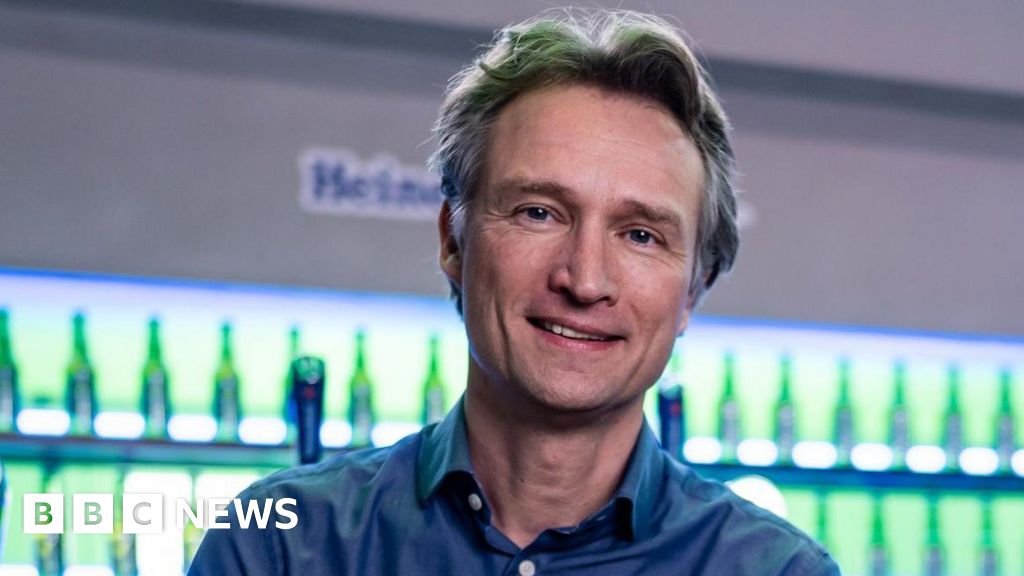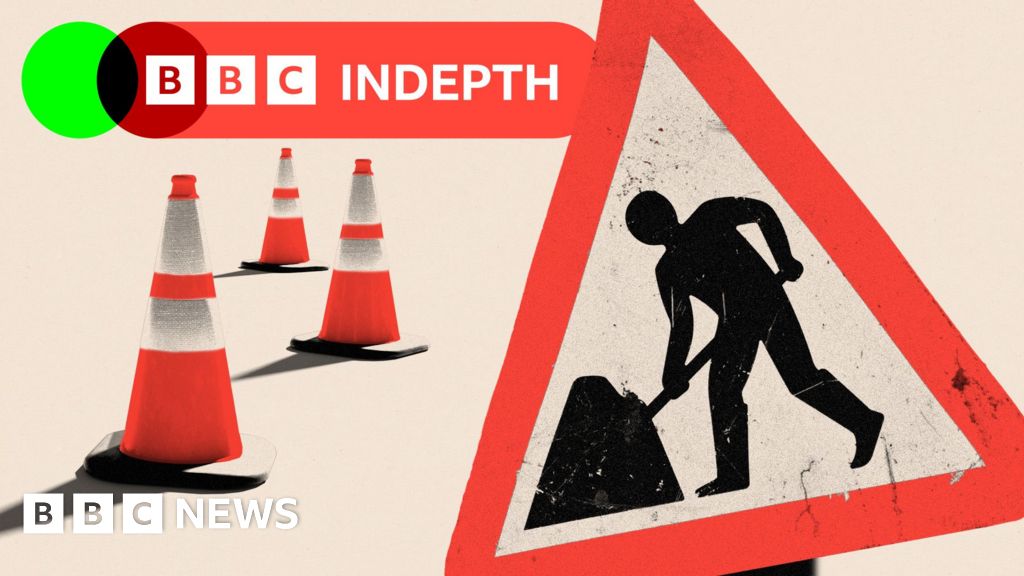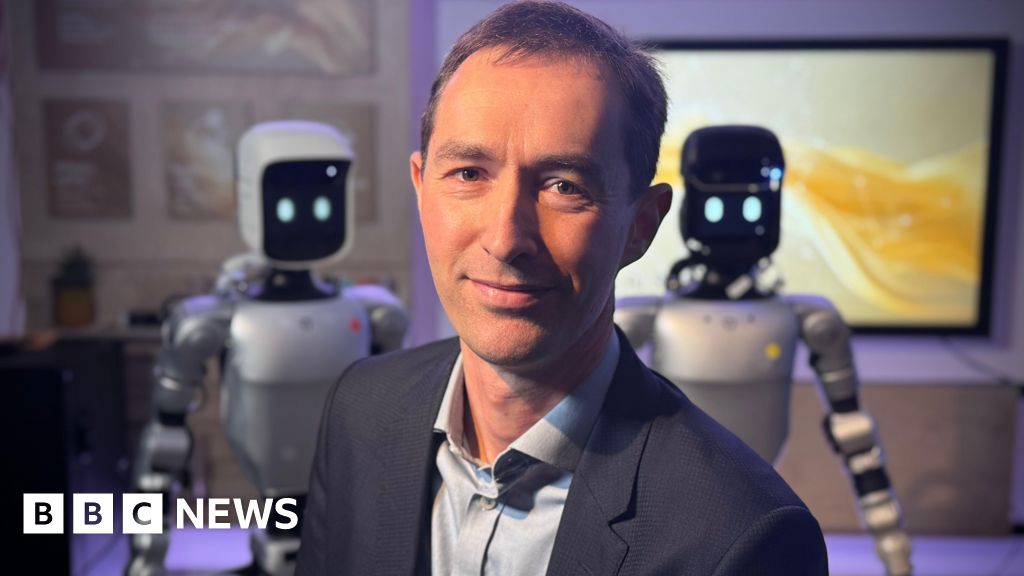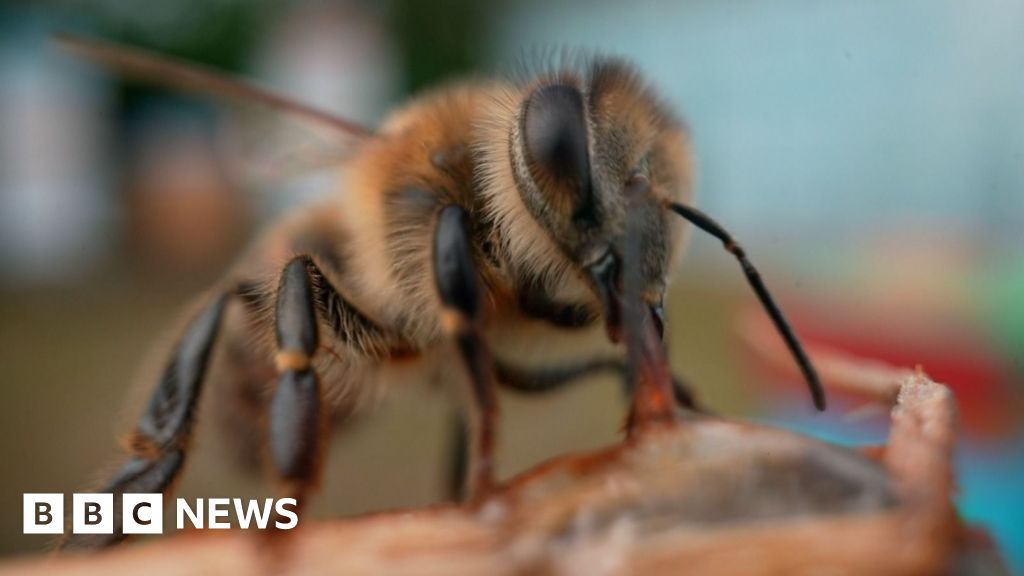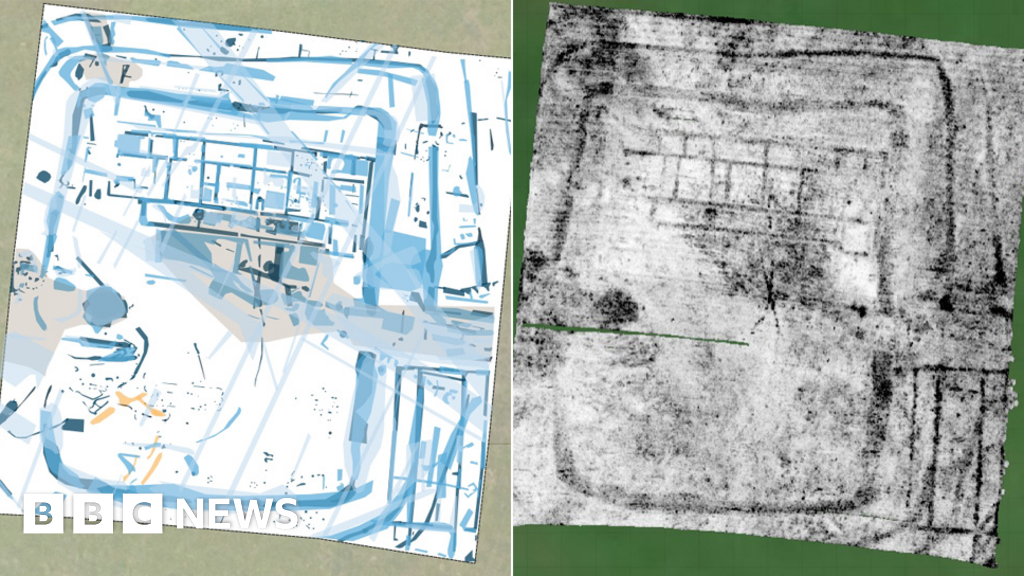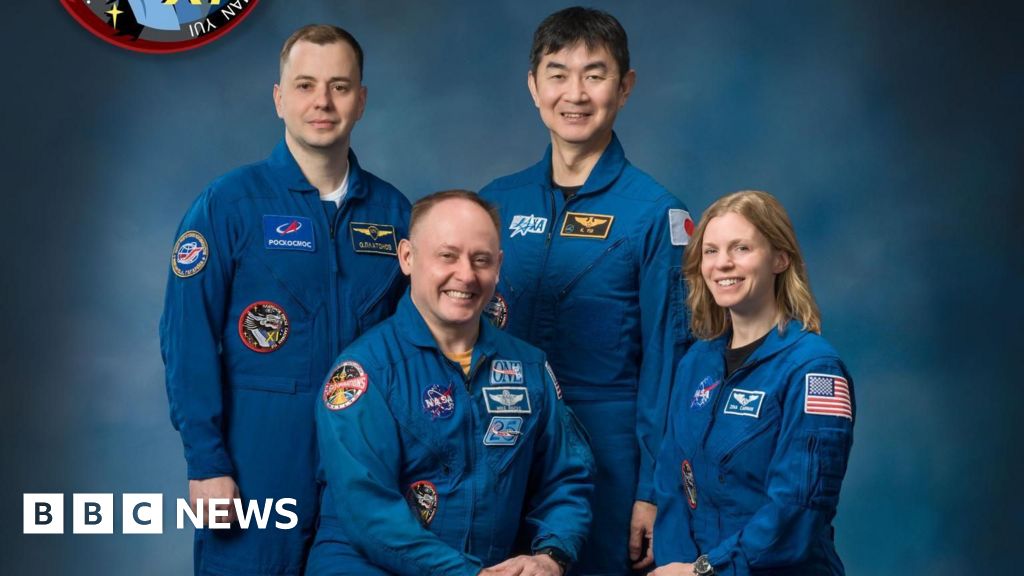Climate and science correspondent
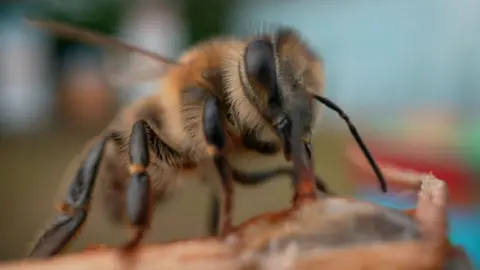 Gwyndaf Hughes/BBC
Gwyndaf Hughes/BBCScientists have developed a honeybee “superfood” that could protect the animals against the threats of climate change and habitat loss.
Bee colonies that ate the supplement during trials had up to 15 times more baby bees that grew to adulthood.
Honeybees are a vital part of food production and contribute to pollinating 70% of leading global crops.
“This technological breakthrough provides all the nutrients bees need to survive, meaning we can continue to feed them even when there’s not enough pollen,” senior author Professor Geraldine Wright at the University of Oxford told BBC News.
“It really is a huge accomplishment,” she says.
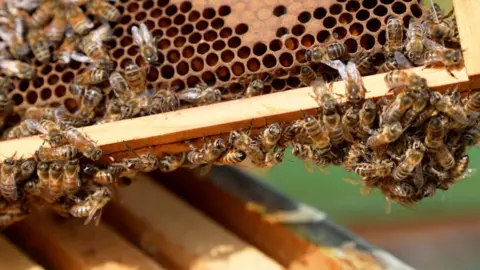 Gywndaf Hughes/BBC
Gywndaf Hughes/BBCHoneybees globally are facing severe declines, due to nutrient deficiencies, viral diseases, climate change and other factors. In the US, annual colony losses have ranged between 40-50% in the last decade and are expected to increase.
Beekeepers in the UK have faced serious challenges too.
Nick Mensikov, chair of the Cardiff, Vale and Valleys Beekeepers Association, told BBC News that he lost 75% of his colonies last winter and that this has been seen across South Wales.
“Although the hives have all been full of food, the bees have just dwindled. Most of the bees survived through January, February, and then they just vanished,” he says.
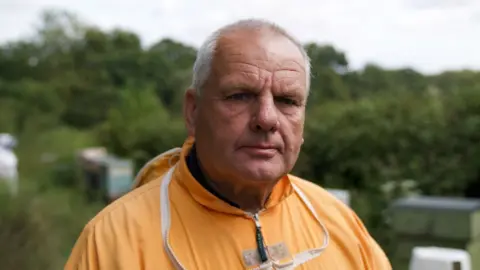 Gwyndaf Hughes/BBC
Gwyndaf Hughes/BBCHoneybees feed on pollen and nectar from flowers that contain the nutrients, including lipids called sterols that are necessary for their development.
They make honey in hives, which becomes their food source over winter when flowers have stopped producing pollen.
When beekeepers take out honey to sell, or, increasingly, when there isn’t enough pollen available, they give the insects supplementary food.
But that food is made up of protein flour, sugar and water, and has always lacked the nutrients bees require. It is like humans eating a diet without carbohydrates, amino acids, or other vital nutrients.
Sterol has always proved very difficult to manufacture, but Prof Wright has led a group of scientists for 15 years to identify which exact sterols bees need and how engineer them.
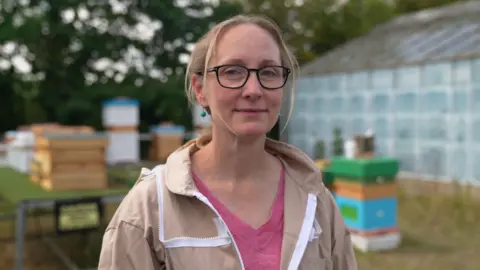 Gwyndaf Hughes/BBC
Gwyndaf Hughes/BBCIn the lab at Oxford, PhD student Jennifer Chennells showed us small clear boxes of honeybees in an incubator that she feeds with different foods she has made.
She uses kitchen equipment you could find at home to make the raw ingredients, and rolls out glossy, white tubes of food.
“We put ingredients into what’s like a cookie dough, with different proteins, fats, different amounts of carbohydrate, and the micronutrients that bees need. It’s to try to work out what they like best and what’s best for them,” she says.
She pushes the tubes inside the boxes and bees nibble at the mixture.
It’s in this lab that, using gene editing, Prof Wright’s team successfully made a yeast that can produce the six sterols that bees need.
“It’s a huge breakthrough. When my student was able to engineer the yeast to create the sterols, she sent me a picture of the chromatogram that was a result of the work,” she says, referring to a chart of the substance structure.
“I still have it on the wall of my office,” she explains.
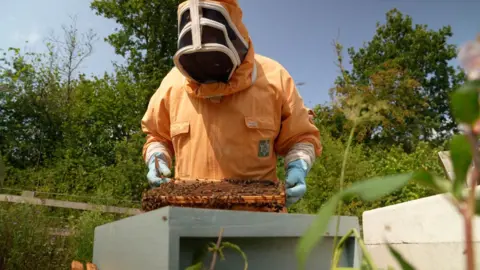 Gwyndaf Hughes/BBC
Gwyndaf Hughes/BBCThe “superfood” was fed to bees in the lab’s hives for three months.
The results showed that colonies fed the food had up to 15 times more baby bees that made it to adulthood.
“When the bees have a complete nutrition they should be healthier and less susceptible to disease,” Prof Wright says.
Prof Wright says the food would be particularly useful during summers like this one when flowering plants appear to have stopped producing early.
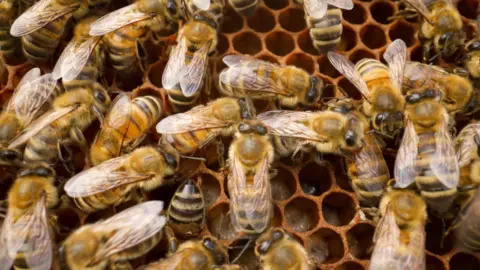 Gwyndaf Hughes/BBC
Gwyndaf Hughes/BBC“It’s really important in years when the summer came early and bees will not have sufficient pollen and nectar to make it through the winter,” she says.
“The more months that they go without pollen, the more nutritional stress that they will face, which means that the beekeepers will have greater losses of those bees over winter,” she explains.
Larger-scale trials are now needed to assess the long-term impacts of the food on honeybee health, but the supplement could be available to beekeepers and farmers within two years.
The study was led by University of Oxford, working with Royal Botanic Gardens Kew, University of Greenwich, and the Technical University of Denmark.
The research is published in the journal Nature.


